SCHINNEN, the Netherlands (June 2009): U.S. Army Garrison Schinnen chaplain assistant Sgt. Wayne Karbowski finished a 12-mile road march in record time, held his cool before a tough board of inquiry and sailed through a warrior skills test to win Soldier of the Year for the Benelux region of the Netherlands, Germany and Belgium earlier this spring.
But that was easy compared to the hurdles he's overcome in battling Post Traumatic Stress Disorder (PTSD) and Traumatic Brain Injury (TBI). His story is both inspirational and distressing, and it's also indicative of what some Soldiers face as their military careers continue after serving downrange.
Combat Injuries
In 2004, Karbowski was serving a year-long stint at FOB Gaines Mills, located west of Kirkuk, Iraq, when a mortar round exploded outside his tent. He lost consciousness and doesn't remember much about the explosion or the minutes thereafter.
First thing he recalls is a colleague rushing to his side, horrified that Karbowski's ears were bleeding. Karbowski couldn't hear anything and felt no pain, so he waved off the friend and went to help other wounded Soldiers. Karbowski never sought medical treatment that day, although he remembers being very sleepy, which he blamed on exhaustion.
It never occurred to him this could be a symptom of brain injury. "I didn't feel like anything was wrong with me," Karbowski remembers, "How could I even think like that when there were people around me with obvious injuries'" Within days, Karbowski noticed memory lapses.
One incident a few weeks later cost him a potential promotion because he forgot his weapon in the guard shack. "No one ever said this might be a medical problem," Karbowski notes. "You've got to remember the time this happened. Back then, nobody talked about TBI. Nobody knew anything about it."
TBI, or Traumatic Brain Injury, occurs when a sudden outside trauma causes damage to the brain. It is a major cause of disability and death worldwide, usually from auto accidents, falls or violence. It has also become one of the signature injuries among Coalition Forces serving in the Iraq and Afghanistan conflicts.
Between 2003 and 2007, the Military Health System recorded over 43,000 cases of TBI among OIF/OEF service members, according to a 2009 Congressional Research Service report. A large percentage of those likely resulted from blast explosions like the one Karbowski survived.
The same report cites nearly 40,000 OIF/OEF service members diagnosed with Post-Traumatic Stress Disorder (PTSD), a severe emotional condition that develops after experiencing extreme psychological or physical trauma. Various studies estimate anywhere from 37 to 42 percent of service members with TBI also experience PTSD. Karbowski fit both of those profiles.
PTSD Diagnose
After returning from Iraq in 2005, friends urged Karbowski to have his hearing checked. "People would come up behind me, but I couldn't hear them until they were right next to me," Karbowski recalled.
Doctors found significant hearing loss but didn't directly link it to the mortar explosion. They did, however, diagnose him with PTSD as a result of other recurring symptoms he experienced, including sleep disorders, phantom smells and anxiety. Still, TBI wasn't on the radar screen.
Karbowski started getting treatment for PTSD. "The Army had me go to group therapy, and I also had to take some medication, but I believe the group therapy really helped, and not just the group but also the doctors," he said. Most of the doctors Karbowski saw at that time had not been deployed themselves.
"In my mind, how were they going to help if they didn't know anything remotely close to what I had been through in war," Karbowski said. Group therapy helped the doctors as much as the Soldiers, Karbowski believes, because "the docs could listen in and gather experience from those who had been there."
The hearing loss and PTSD diagnose meant Karbowski couldn't stay in the Army's infantry career field, so he successfully cross trained to become a Chaplain Assistant. In 2007, while working in his new position at the Ft. Hood hospital, Karbowski read a news article about TBI. He was stunned; all the symptoms matched.
Formal Diagnose
Doctors in Ft. Hood ran a battery of tests and formally diagnosed Karbowski with TBI. It was not what he wanted to hear, but at least it explained a lot about what he had been dealing with since returning from Iraq. The memory loss, the emotional stress, the difficulty concentrating--it all made sense now.
"There would be times when I'd forget something simple, and my wife would be mad. She'd say "how could you forget that'' Now, she understood why," Karbowski explained. The memory loss and problem solving skills had also frustrated him, even triggering questions about his future career potential in the Army.
Having a diagnose and knowing treatment was available helped Karbowski put aside those fears. Recovery of cognitive abilities after TBI is highly individualized and depends on many factors, including the degree of injury. Doctors told him there would always be some scar tissue, but he could live with that. "I've learned to do mental exercises that keep my mind active and stimulate new neuron growth," Karbowski says.
Soldier of the Year
He used those same techniques to prepare for the Soldier of the Year competition. These annual events are designed to replicate what a Soldier could be expected to perform anytime in his/her career. The two-day Benelux competition consisted of a 12-mile road march with 2.5 miles on sand; a land navigation course where Soldiers had barely three hours to find specified coordinates over rough terrain using only a map, compass & mechanical pencil; a physical fitness test and a warrior skills test that included first aid, casualty evaluation, media interaction and functional weapons checks.
Those physical aspects of the competition weren't as challenging for Karbowski as the mental portions of the competition, which involved a written essay and an oral exam before a board of senior leaders. With his wife, Soraya helping him study, Karbowski prepared throughout the year for the monthly and quarterly boards leading up to the competition. "She's like my coach," Karbowki laughs.
The studying became a nightly routine for them both. Soraya smiles, "I'm proud of him and his progress. We really see ourselves as a team." It paid off, as Karbowski walked away with the title of Benelux Soldier of the Year.
It's not something he imagined achieving a few years ago with a PTSD and TBI diagnose. "Looking back, those challenges only made me a better person and gave me a reason to set new goals," Karbowski said.
The road ahead may be filled with more challenges, but Karbowski plans to meet them head on. "I just have to mentally prepare myself for each new challenge and take it as it comes," Karbowski said.
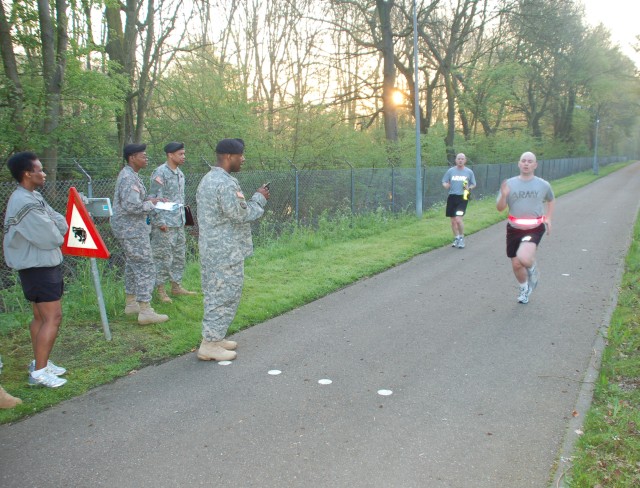
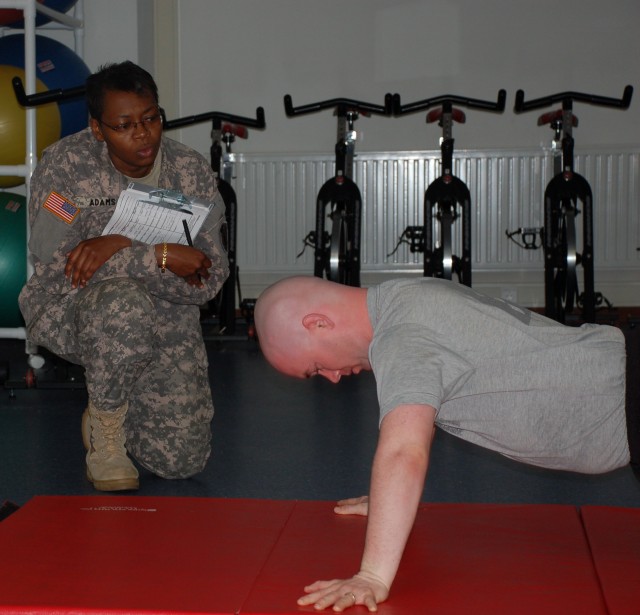
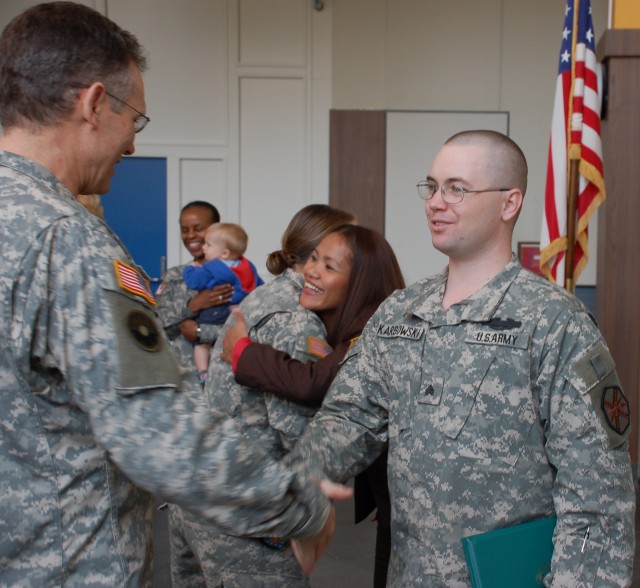
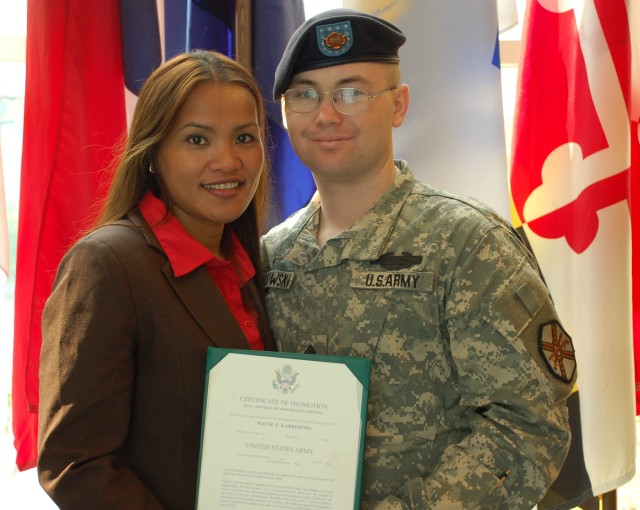
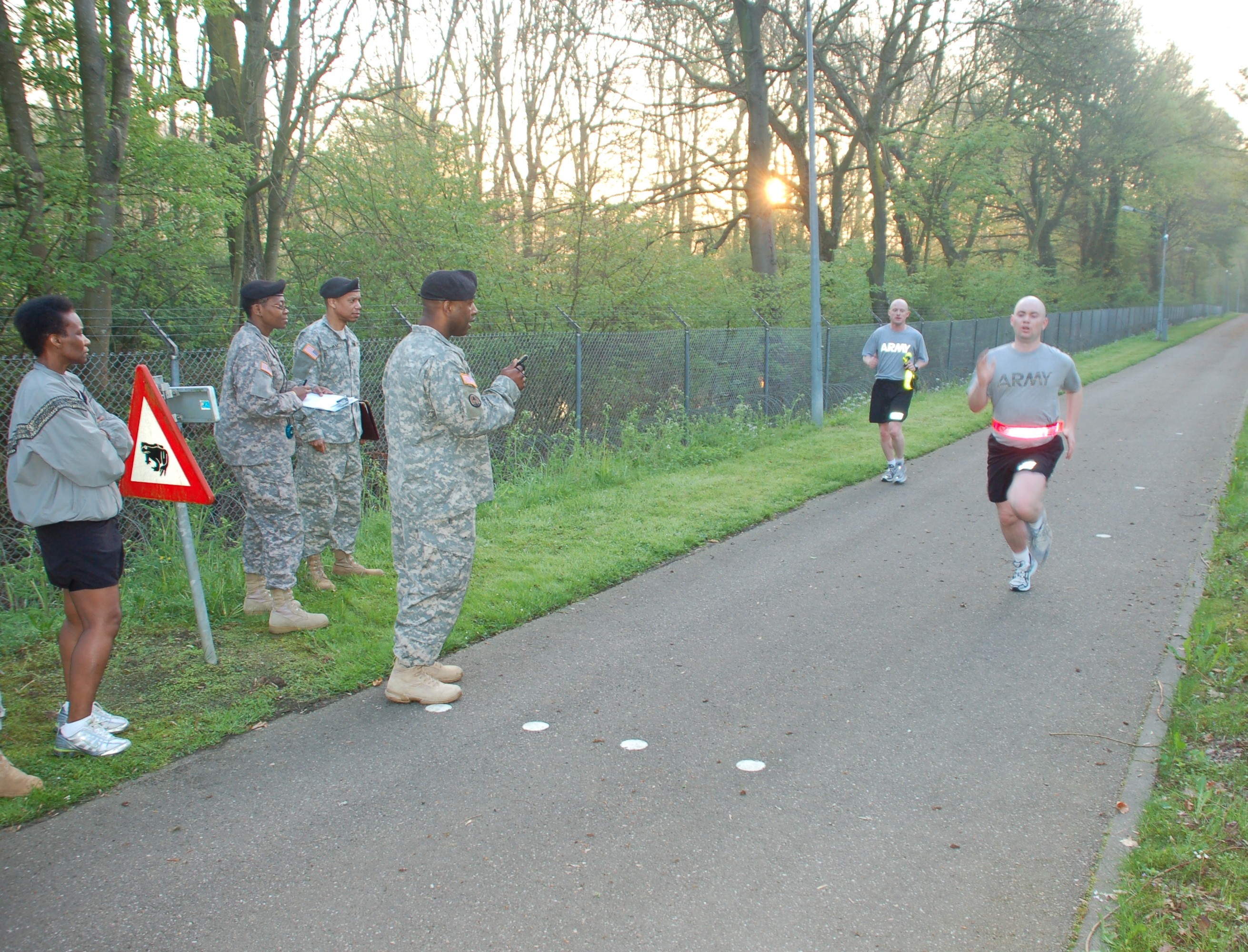
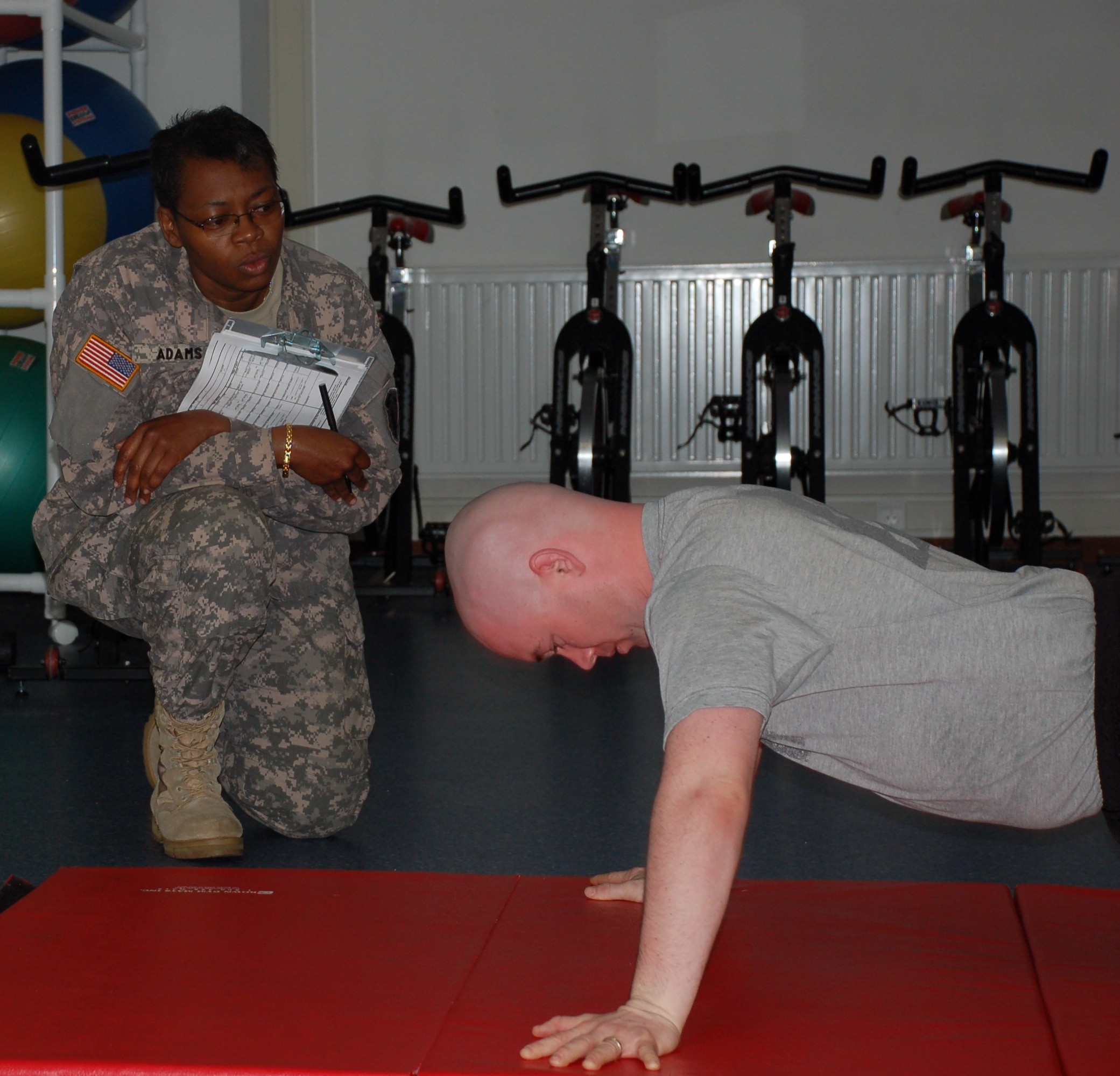
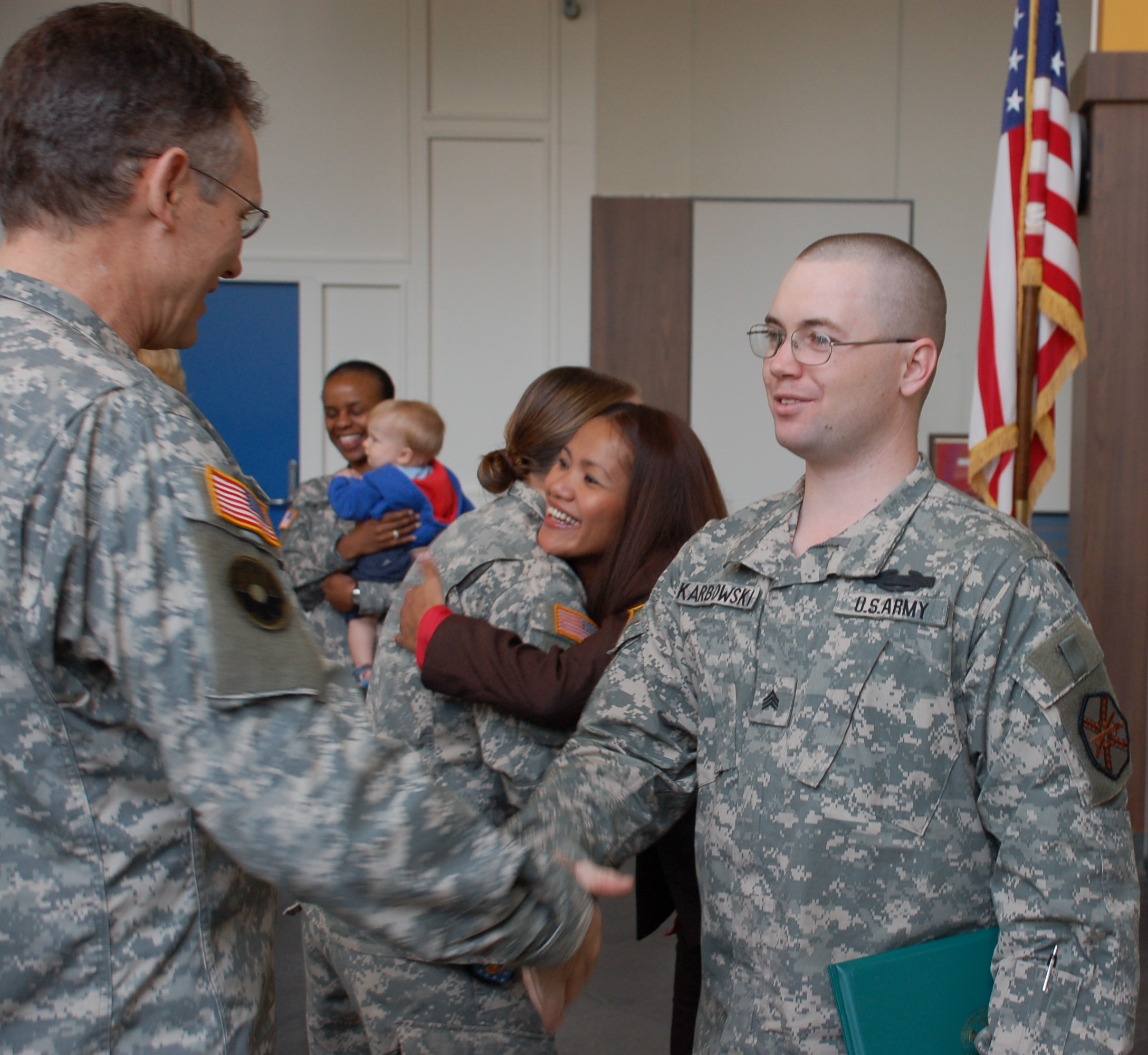
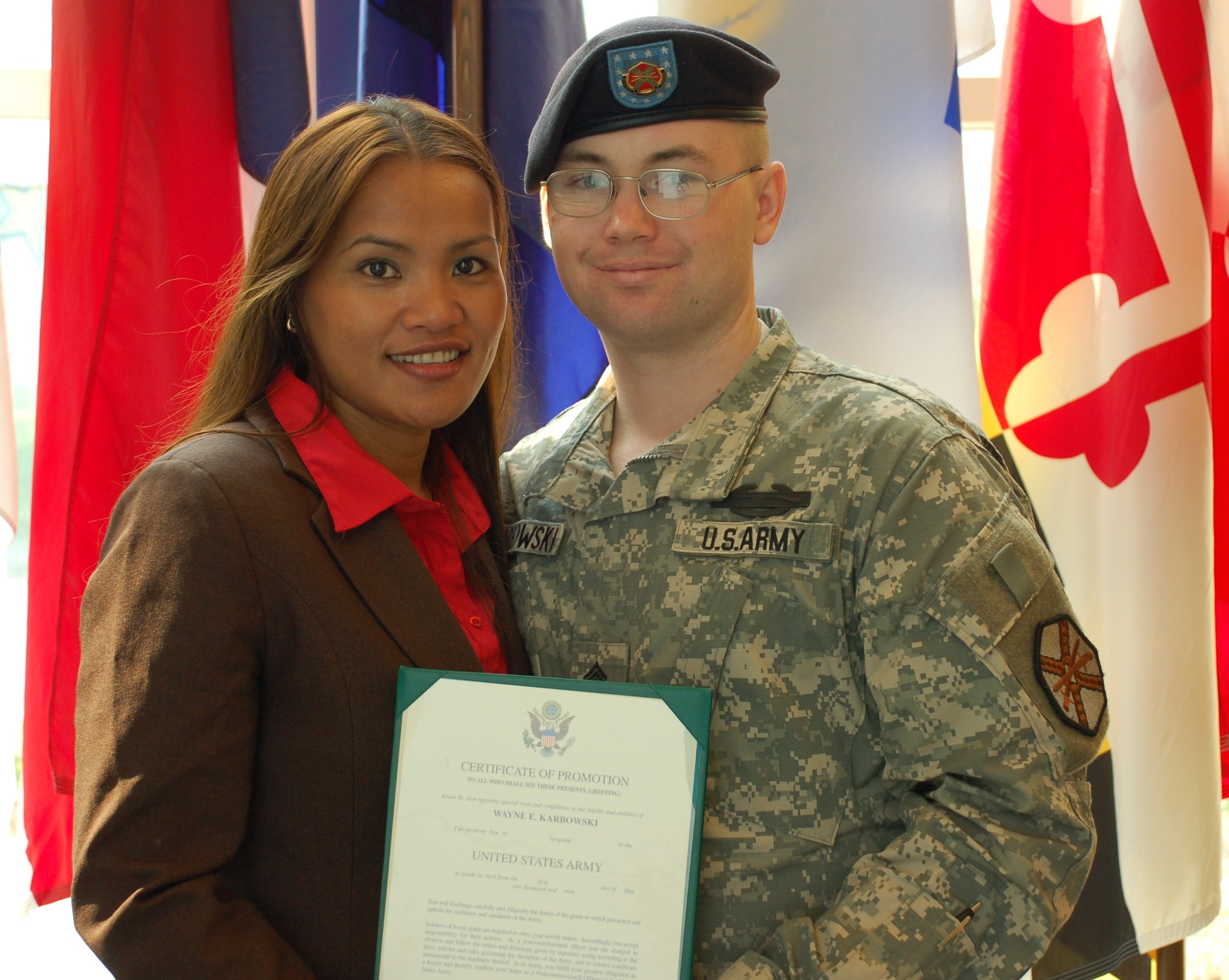
Social Sharing